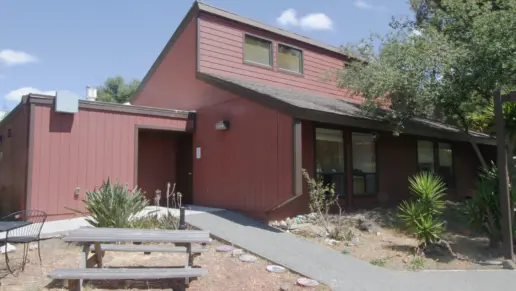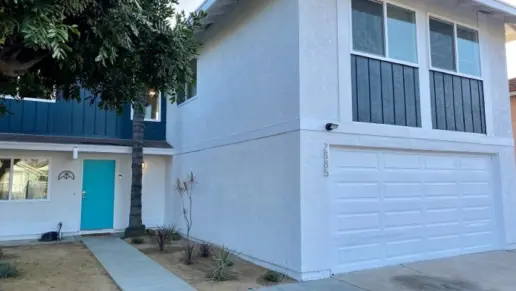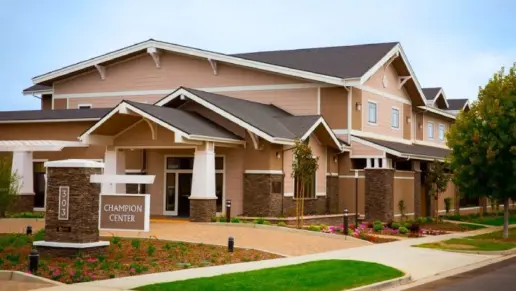The staff is caring and professional. My friend has stayed sober for 4 months now. They saved his life!
About Laguna Treatment Center
Laguna Treatment Hospital is a drug and alcohol rehab in Aliso Viejo, California that offers addiction treatment for adults. The hospital provides comprehensive mental health and addiction treatment, family support, and valuable community resources.
Addiction related services at Laguna Treatment Hospital include clinical assessments, detox, dual diagnosis treatment for substance use disorders and co-occurring disorders, counseling, and a Veterans treatment program.
Mental Health Assessment and Counseling
These assessments help evaluate participants’ mental health as it relates to substance use disorder and co-occurring conditions. The information is used to create an individualized treatment plan, which may involve individual, group, and family counseling.
Inpatient Detox
The inpatient residential detox program allows individuals to safely and comfortably detox from drugs and alcohol. Following detox, participants are referred to an addiction treatment program.
Dual Diagnosis Addiction & Mental Health Treatment
This treatment applies evidence-based practices to treat addiction and mental health diagnoses. The hospital offers programs for adults aged 18 and older. Treatment begins with the completion of a mental health assessment and development of an individualized plan of care.
Veterans Program
This program is dedicated to the treatment of Veterans and active-duty military personnel. This trauma-informed program supports participants in addiction treatment, counseling, and dual diagnosis mental health disorders, such as PTSD.
Latest Reviews
Rehab Score
Gallery
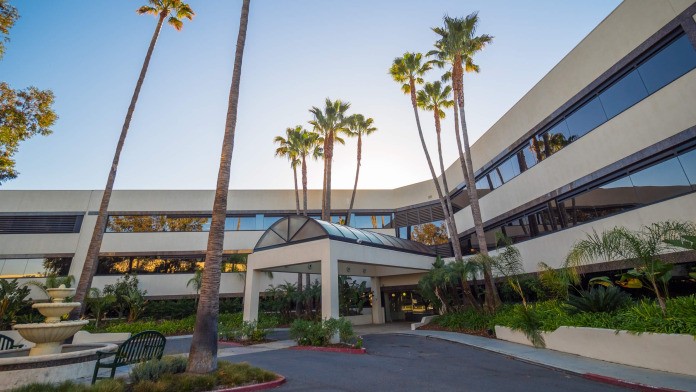


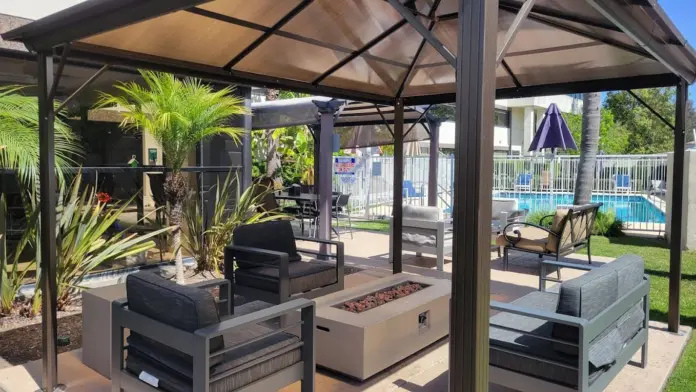
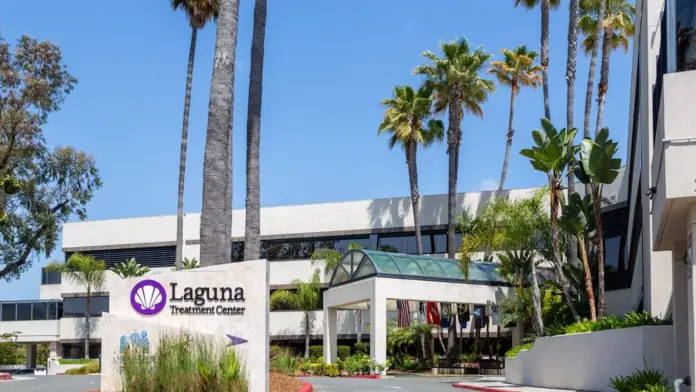
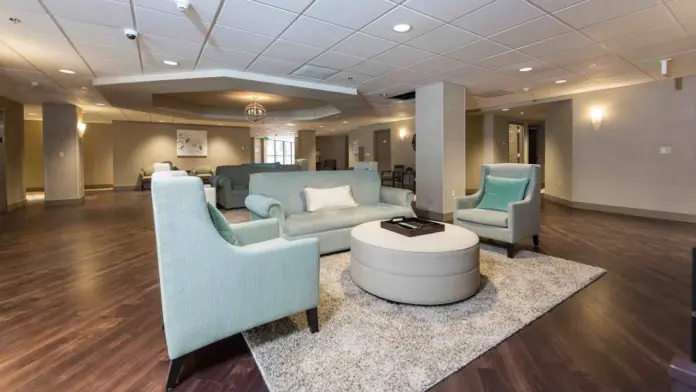
Location
Accepted Insurance


Other Forms of Payment
Private insurance refers to any kind of healthcare coverage that isn't from the state or federal government. This includes individual and family plans offered by an employer or purchased from the Insurance Marketplace. Every plan will have different requirements and out of pocket costs so be sure to get the full details before you start treatment.
Self-pay involves paying for treatment out of your own pocket. You can use savings or credit, get a personal loan, or receive help from family and friends to fund your treatment. If you don't have insurance or your insurance plan doesn't cover a specific program, self-pay can help ensure you still get the care you need.
Military members, veterans, and eligible dependents have access to specific insurance programs that help them get the care they need. TRICARE and VA insurance can help you access low cost or no cost addiction and mental health treatment. Programs that accept military insurance often have targeted treatment focused on the unique challenges military members, veterans, and their families face.
Addiction Treatments
Levels of Care
Treatments
The goal of treatment for alcoholism is abstinence. Those with poor social support, poor motivation, or psychiatric disorders tend to relapse within a few years of treatment. For these people, success is measured by longer periods of abstinence, reduced use of alcohol, better health, and improved social functioning. Recovery and Maintenance are usually based on 12 step programs and AA meetings.
Drug rehab in California teaches participants constructive ways to stay clean and sober. Treatment revolves around helping individuals stop using the substance they are addicted to and learn healthy habits to avoid relapse.
Many of those suffering from addiction also suffer from mental or emotional illnesses like schizophrenia, bipolar disorder, depression, or anxiety disorders. Rehab and other substance abuse facilities treating those with a dual diagnosis or co-occurring disorder administer psychiatric treatment to address the person's mental health issue in addition to drug and alcohol rehabilitation.
A combined mental health and substance abuse rehab has the staff and resources available to handle individuals with both mental health and substance abuse issues. It can be challenging to determine where a specific symptom stems from (a mental health issue or an issue related to substance abuse), so mental health and substance abuse professionals are helpful in detangling symptoms and keeping treatment on track.
Opioid rehabs specialize in supporting those recovering from opioid addiction. They treat those suffering from addiction to illegal opioids like heroin, as well as prescription drugs like oxycodone. These centers typically combine both physical as well as mental and emotional support to help stop addiction. Physical support often includes medical detox and subsequent medical support (including medication), and mental support includes in-depth therapy to address the underlying causes of addiction.
Programs




Clinical Services
Many individuals with substance abuse issues experience harmful thinking and negative thought patterns that drive their unhealthy behaviors. Laguna Treatment Hospital incorporates CBT into their programming because CBT allows the therapist to collaborate with clients and encourage them to question and examine their thought patterns so as to eliminate or phase out the unhealthy ones.
While participating in dialectical behavior therapy in California, you'll focus on four key areas of skill development: mindfulness, interpersonal effectiveness, emotion regulation, and distress tolerance. Treatment includes weekly individual and group sessions.
Group therapy is any therapeutic work that happens in a group (not one-on-one). There are a number of different group therapy modalities, including support groups, experiential therapy, psycho-education, and more. Group therapy involves treatment as well as processing interaction between group members.
In individual therapy, a patient meets one-on-one with a trained psychologist or counselor. Therapy is a pivotal part of effective substance abuse treatment, as it often covers root causes of addiction, including challenges faced by the patient in their social, family, and work/school life.
Laguna Treatment Hospital practices MI as a major aspect of their programming because it allows their licensed clinicians to collaborate with clients to strengthen their motivation and commitment to change. Laguna Treatment Hospital seeks to “meet their clients where they are” and help them move from any ambivalent feelings about treatment and their addiction to a state of genuine desire for change.
Trauma therapy addresses traumatic incidents from a client's past that are likely affecting their present-day experience. Trauma is often one of the primary triggers and potential causes of addiction, and can stem from child sexual abuse, domestic violence, having a parent with a mental illness, losing one or both parents at a young age, teenage or adult sexual assault, or any number of other factors. The purpose of trauma therapy is to allow a patient to process trauma and move through and past it, with the help of trained and compassionate mental health professionals.
Research clearly demonstrates that recovery is far more successful and sustainable when loved ones like family members participate in rehab and substance abuse treatment. Genetic factors may be at play when it comes to drug and alcohol addiction, as well as mental health issues. Family dynamics often play a critical role in addiction triggers, and if properly educated, family members can be a strong source of support when it comes to rehabilitation.
Recreational therapy is included in alcohol and drug addiction treatment to focus on engaging you in healthy activities that reduce your cravings and improve your overall health and well being. When you participate in group sports, art, or nature walks, you develop new interests and find a meaningful way to spend your time and reduce your cravings.
Amenities
-
Gym
-
Residential Setting
-
Private Rooms
Accreditations

The Joint Commission, formerly known as JCAHO, is a nonprofit organization that accredits rehab organizations and programs. Founded in 1951, the Joint Commision's mission is to improve the quality of patient care and demonstrating the quality of patient care.
Joint Commission Accreditation: Yes
Accreditation Number: 591319
Contact Information
24552 Pacific Park Drive
Aliso Viejo CA, 92656








